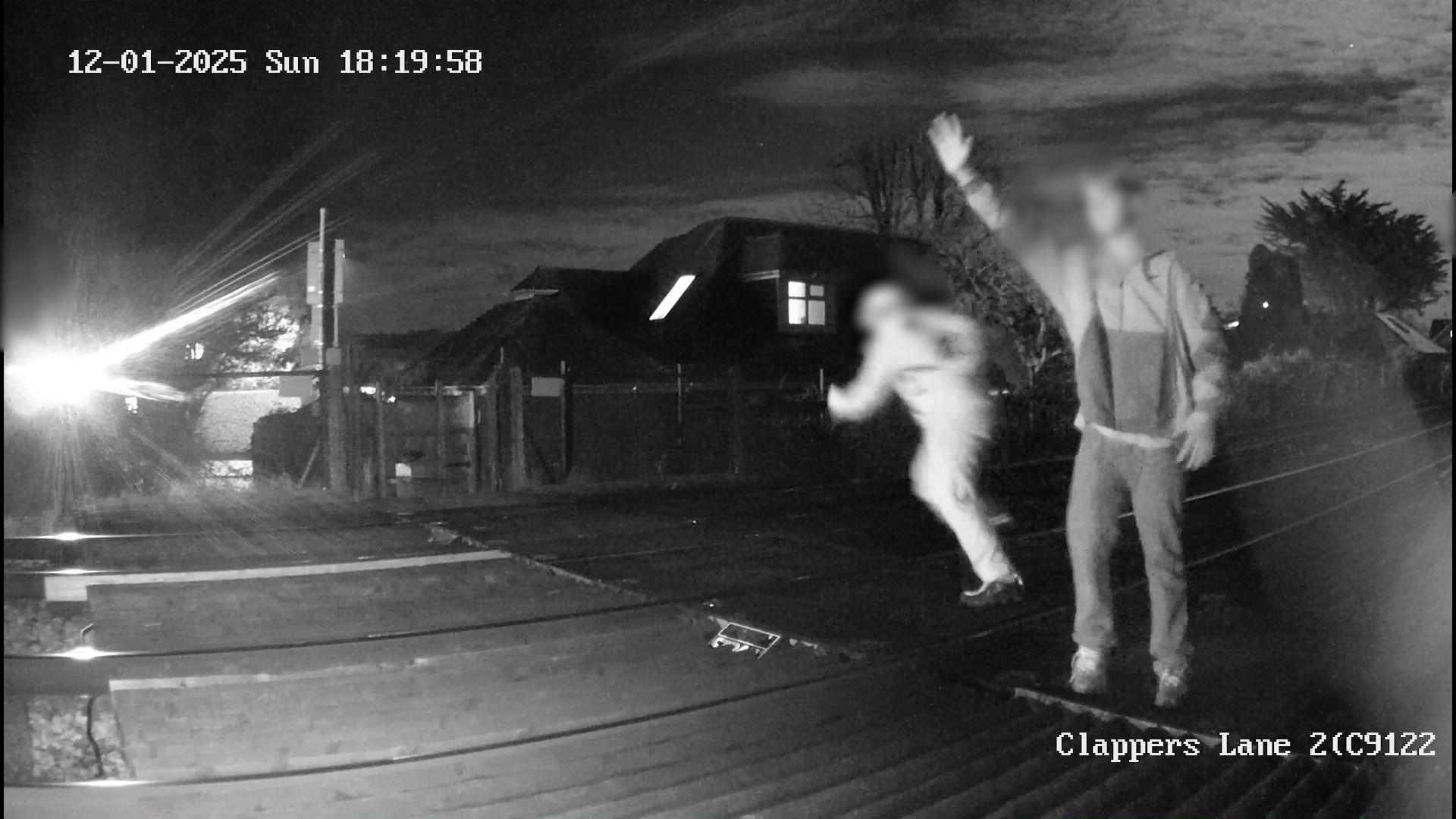Rail trespassers warned to 'stay off the tracks'
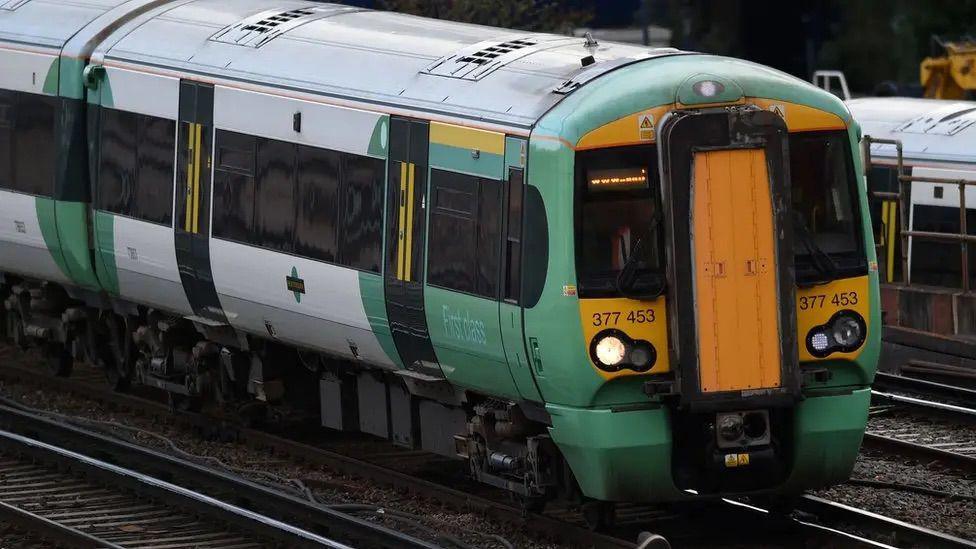
The Network Rail head of security highlighted the significant "human impact" of trespassing
- Published
There can be "up to a dozen incidents" of trespassing each day on train lines in Sussex and Kent, Network Rail has said.
Paul Langley, head of security, crime and resilience for the southern region, said the railway environment was "inherently dangerous" and trespassing exacerbated this.
He was speaking from Three Bridges Rail Operating Centre incident control room, where staff demonstrated how the team ensured the smooth running of one of the busiest lines in the UK.
He said: "Our message is, stay off the tracks. You're putting not only yourself at risk, but also those people who have to respond to it."
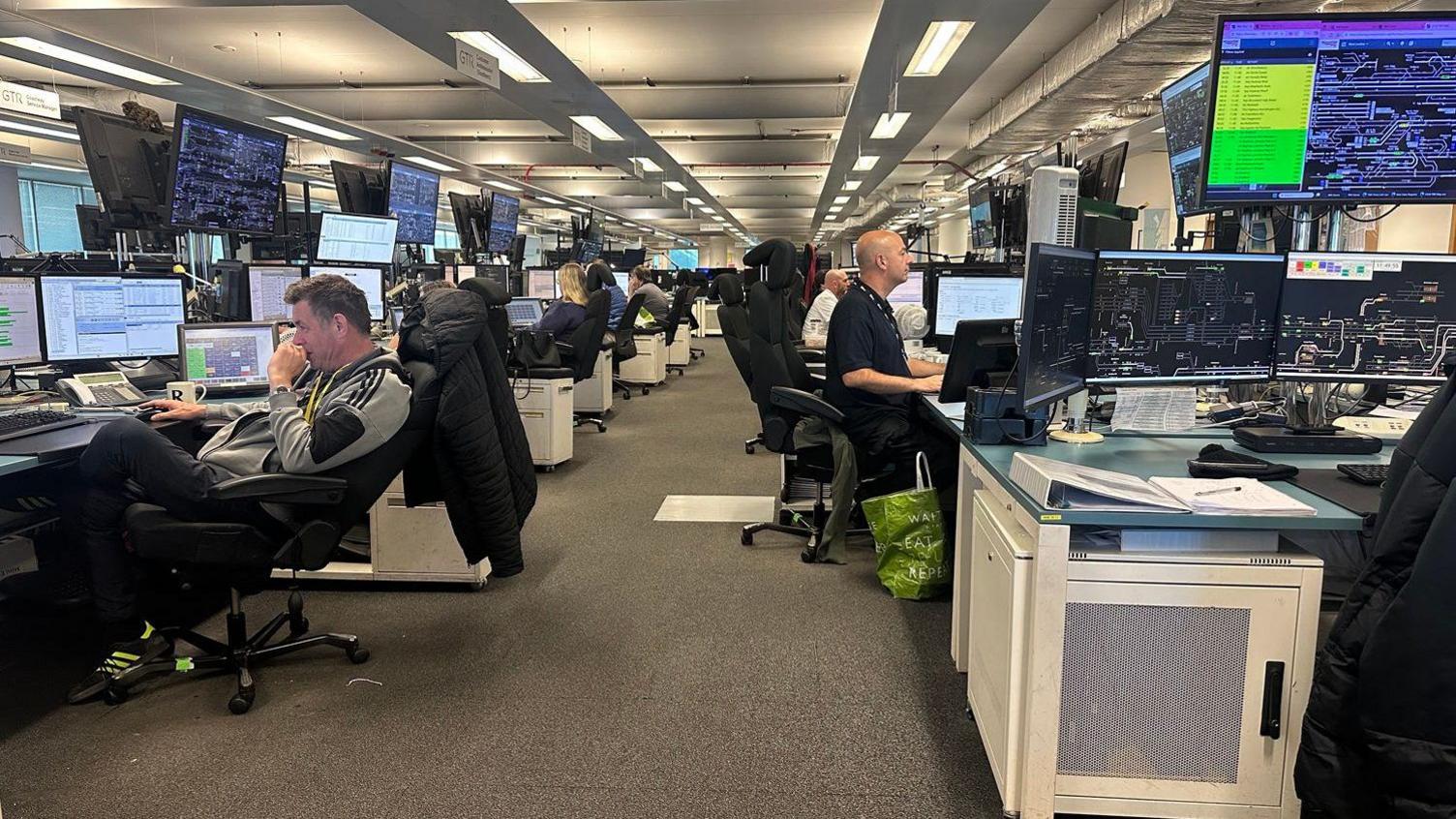
Network Rail invited the BBC to tour the Three Bridges control room to see how staff ensured the smooth running of the rail line
Mr Langley made clear the "huge impact" such incidents had on staff, including those responding on the ground and "the people who are managing this on a daily basis in control".
He said: "These can end in really tragic incidents that we see, unfortunately, quite regularly on the railway."
With trespassing being one of the "key drivers" for delays, he was also keen to highlight the significant "human impact" that had.
He said: "We're not a million miles from Gatwick Airport. People that are travelling there can miss flights."
Hospital appointments can also be missed, he added, while trespassing can also create "childcare issues", and result in missed meetings.
"This impacts thousands of people, almost on a daily basis," he said.
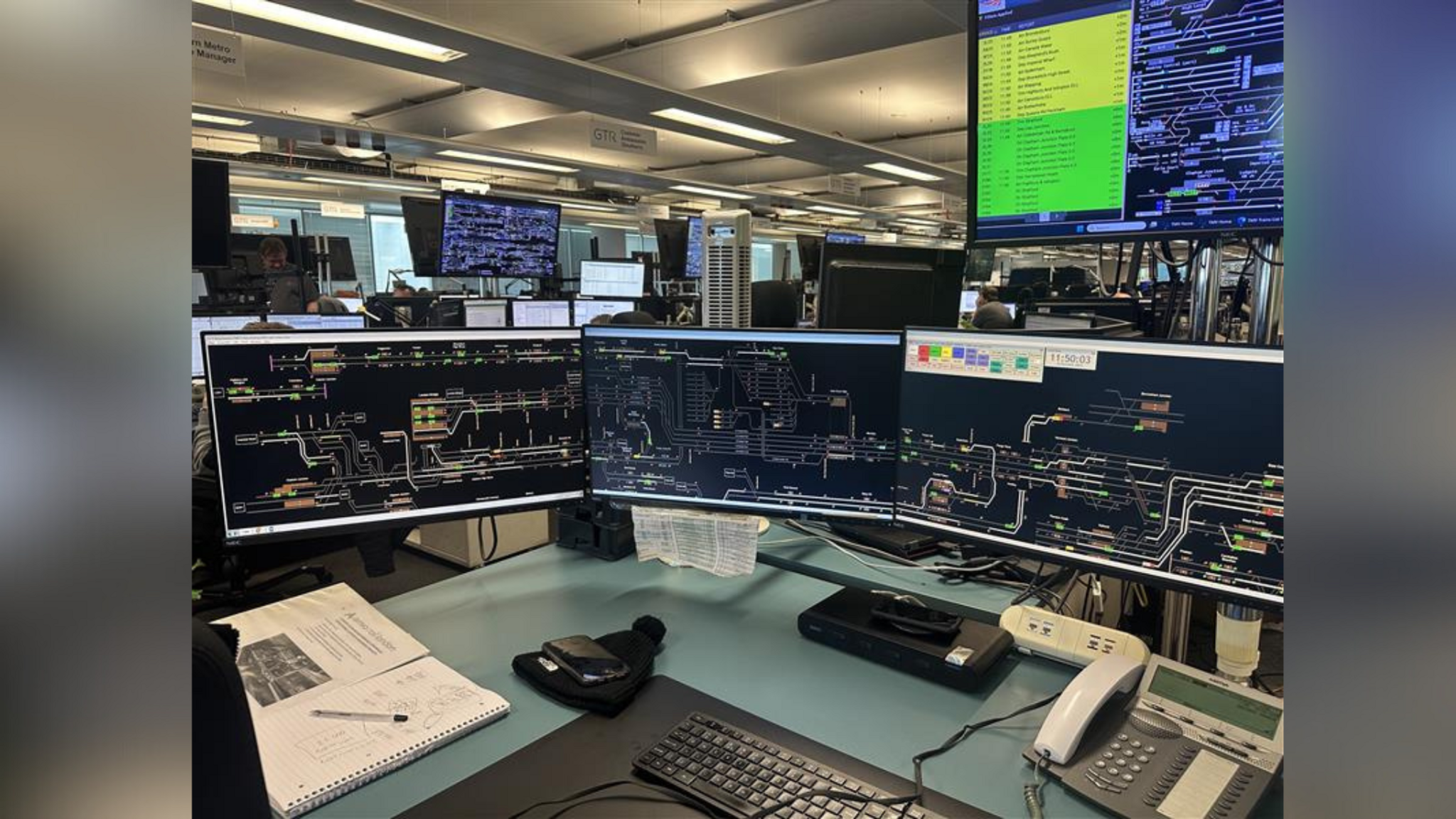
Mr Langley from Network Rail said the impact of trespassing was multi-faceted
The security head said that, while there can be up to a dozen trespassing incidents per day, numbers do fluctuate.
When it comes to spotting trespassers, drones are a key tool.
Insp Paul Donovan from British Transport Police said drones offer "fantastic situational awareness" which allow the force to help reduce disruption on the railway.
He said: "We can turn up and deploy the drone, it's a lot quicker, it's a lot more effective for getting the railway back to normality.
"Most importantly, it's a safety thing as well, because it helps us minimise risk...
"The important thing for us is to get the railway moving as soon as possible when it's safe to do so."
Follow BBC Sussex on Facebook, external, on X, external, and on Instagram, external. Send your story ideas to southeasttoday@bbc.co.uk, external or WhatsApp us on 08081 002250.
Related topics
- Published5 December 2024
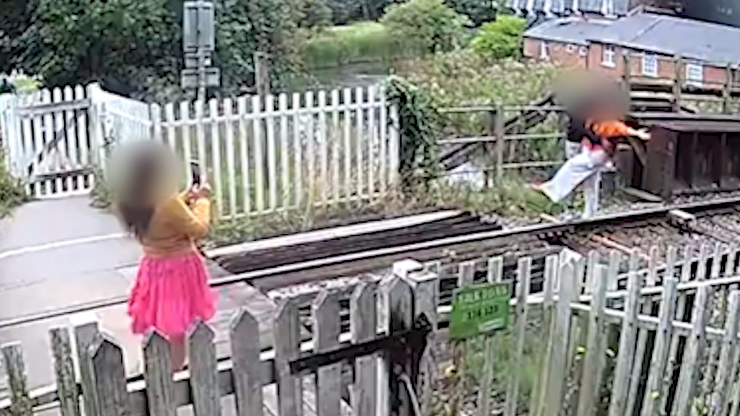
- Published9 April
